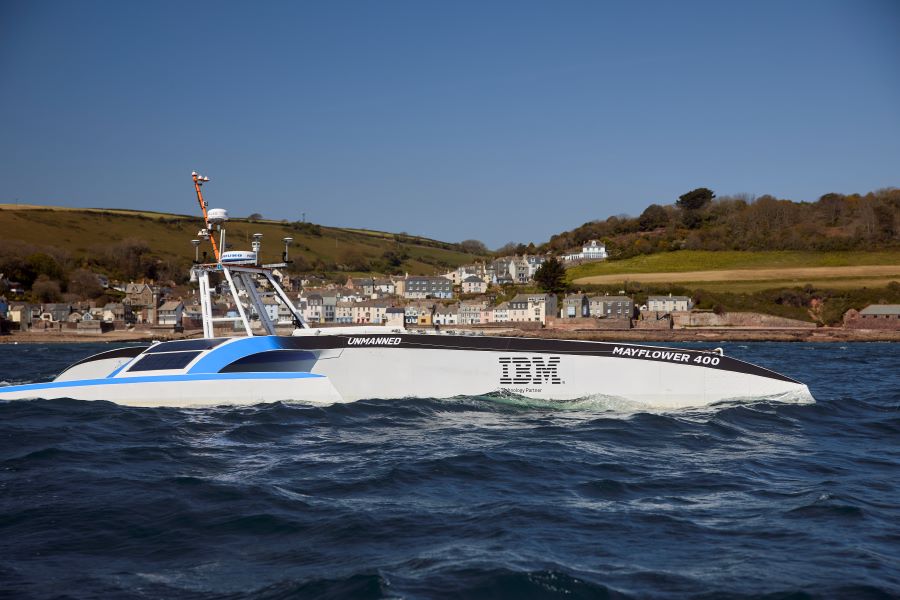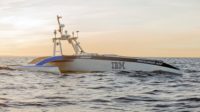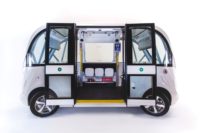PLYMOUTH, England—This year marks the 400th anniversary of the Mayflower, the ship that transported more than 100 brave souls across the Atlantic Ocean to Cape Cod, MA. To celebrate the historic event, an autonomous research vessel will retrace the voyage in the spring.
But, instead of a load of Pilgrims, the ship will contain state-of-the-art technology, including 30 sensors, 15 edge devices, 15 solar panels and six cameras that will be monitored by a land-based crew. GPS, lidar, radar and other devices will also help the new-age Mayflower safely navigate around buoys, cargo ships and other ocean hazards.
Along the way, the Mayflower Autonomous Ship will gather environmental data from air and water samples, in addition to monitoring ocean currents and temperatures. It will also collect information about pollution and marine mammals, such as dolphins and whales.
The 49-foot-long trimaran, sponsored by IBM and ProMare, will leave Plymouth harbor on April 19. ProMare is a nonprofit organization that is dedicated to ocean research.
The 5-ton ship was built by Aluship Technology, a Polish company that specializes in aluminum vessels. It will be powered by a hybrid propulsion system that uses a 20-kilowatt solar-powered electric motor made by Fischer Panda, in addition to a rigid sail fin, batteries and a diesel generator for emergency backup power.
The next-generation Mayflower will feature an artificial intelligence system that can sense, think and make decisions at sea similar to a human captain and crew.
“Able to scan the horizon for possible hazards, make informed decisions and change its course based on a fusion of live data, the Mayflower Autonomous Ship has more in common with a modern bank than its 17th century namesake,” says Andy Stanford-Clark, chief technology officer at IBM UK & Ireland.
An interactive web portal will enable people around the world to track the voyage. It will provide real-time updates about the ship’s location, environmental conditions and weather data.
“This portal is designed to tell people where the ship is, what speed it’s travelling at, what conditions it’s operating in and what science we are conducting,” explains Fredrik Soreide, scientific director of the Mayflower Autonomous Ship project.






